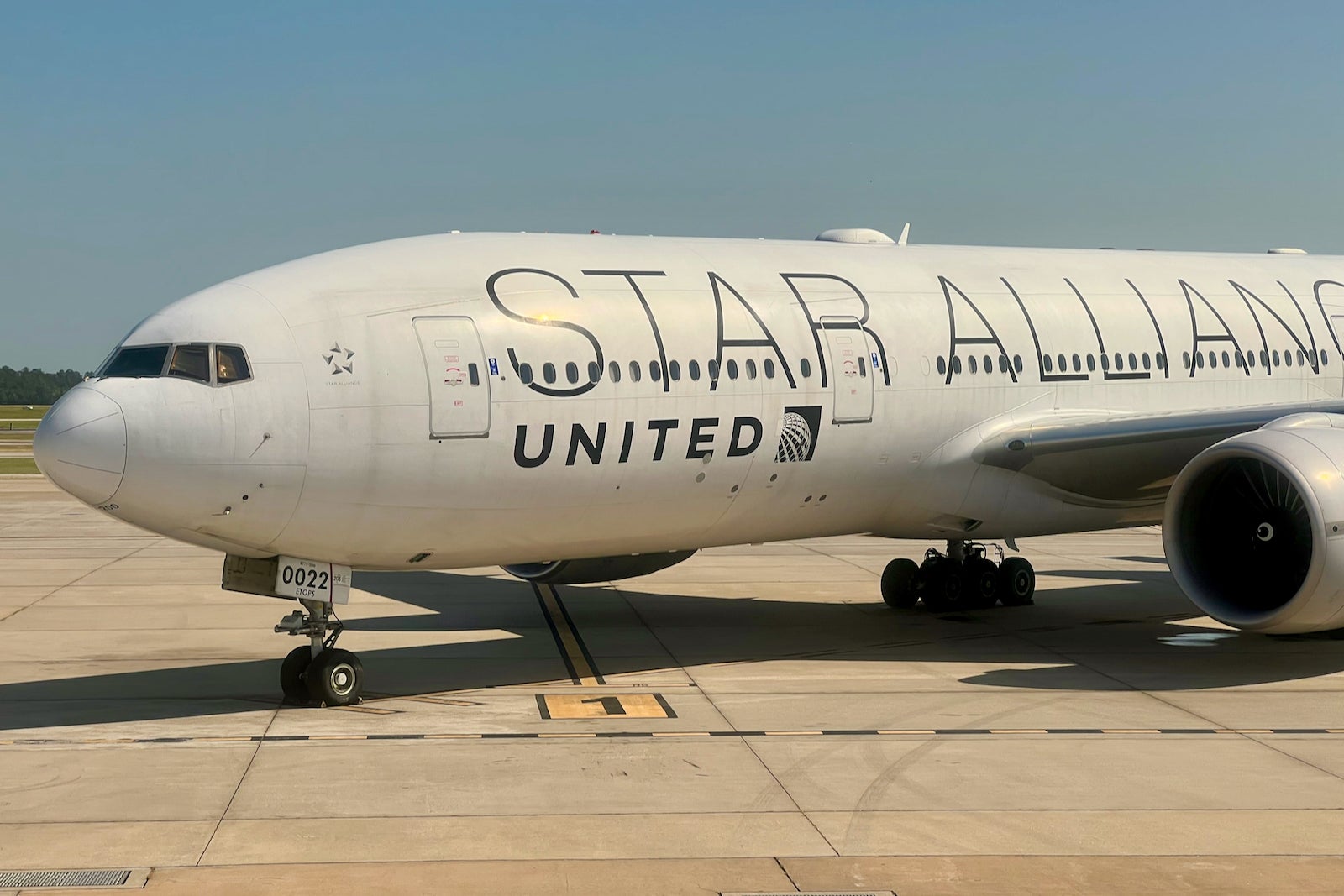“Don’t poke the bear.” That’s the warning that United Airlines is seemingly sending to Alaska Airlines.
Over the weekend, United added a fourth daily frequency beginning June 2 on its route from Dulles International Airport (IAD) near Washington, D.C., to San Diego International Airport (SAN), as first seen in Cirium schedules.
Instead of flying a Boeing 737 as it does on the three other daily flights in the market, United will deploy a 364-seat Boeing 777-200, its largest plane in the fleet by capacity, on the new frequency.
United’s 364-seat Boeing 777 is arranged in a domestic configuration with 28 lie-flat business-class seats and 336 economy seats, 102 of which are in an extra-legroom Economy Plus layout.
This upgauge means that United will offer a whopping 888 seats each day in the market, a roughly 70% increase from its previous plans.
1 of 5
ZACH GRIFF/THE POINTS GUY
In fact, the airline hasn’t operated a Boeing 777 on this route for as long as Cirium schedules have been published (since August 2003). These high-density Boeing 777s are usually reserved for United’s busiest domestic routes, including those to and from Hawaii.
So, why the sudden change of strategy?
Well, it’s perhaps no coincidence that Alaska Airlines last week announced a big expansion from San Diego, which includes three new routes.
One to Tampa. Another to Eugene, Oregon. And finally, one to — you guessed it — Dulles.
Sign up for our daily newsletter
United has enjoyed a monopoly on the 2,253-mile IAD-to-SAN route since Southwest dropped the market in March 2016, Cirium schedules show. Without any competition on the nonstop, the airline had strong pricing power on the route for more than six years.
Also, there are no flights from SAN to Ronald Reagan Washington National Airport (DCA), so anyone heading to the nation’s capital would need to fly the United nonstop, fly Southwest nonstop to Baltimore, or connect elsewhere on the way to Washington.
So when Alaska announced last week that it would add new service from San Diego to Dulles starting June 15, United’s network planners likely weren’t too happy. After all, Alaska seemed to inch in on United at one of its key Northeast hubs.
It seems as though United isn’t going to watch from the sidelines. Instead, the airline is going with a full-court press beginning two weeks before Alaska’s big debut. Whether the market can support all this additional service is anyone’s guess, but it’ll certainly be interesting to watch how it plays out.
In fact, Alaska is no stranger to a turf war.
The Seattle-based carrier had a strong relationship with Delta Air Lines in the early 2010s that included a robust codeshare and frequent flyer alliance. By the middle of the decade, however, the partnership frayed as Delta moved instead to build its own hub in Seattle, ultimately competing head-to-head with Alaska on many of its most lucrative routes.
The partnership ultimately ended in 2017 amid an escalating turf battle for Seattle. Since then, Alaska’s been in growth mode — boosting the Seattle hub with new routes while also elevating many elements of the travel experience, including new and expanded airport lounges.
If Alaska’s moves in Seattle are any indication, the airline will likely be undeterred by United’s offensive. But grab your popcorn because this could be a fun one to watch.
















;Resize=(1180))




Discussion about this post